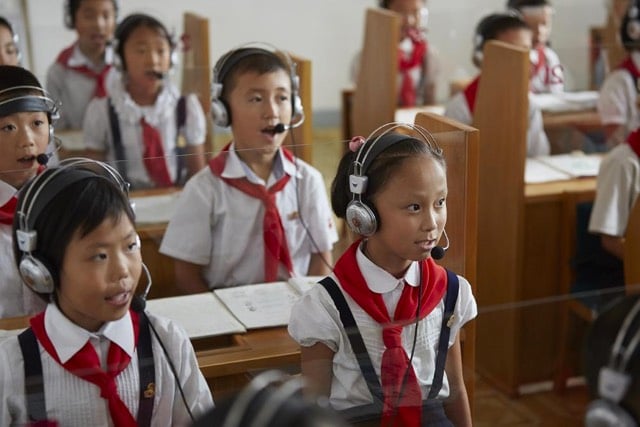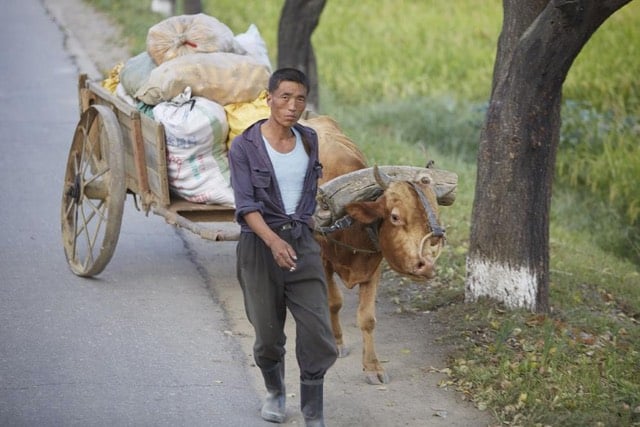Conversations with and photos of everyday North Koreans


Harvard graduate student Christopher Carothers recently travelled to North Korea and, because he was an American white man who spoke Korean, he was able to talk with some everyday North Koreans. The conversations he had make for fascinating reading.
Our tour group visited a local high school in a city north of Pyongyang. The students were disappointed when none of us could name three female North Korean heroes from their revolutionary history.
I didn’t mind their patriotism, and their curiosity was refreshing. But when asked how I liked Pyongyang, what could I say? Usually I just said polite things and was rewarded with beaming faces. But was I being fair to these young adults? Doesn’t intercultural exchange require some basic honesty? I told Jong Ho that I liked Korean people and appreciated how clean and grand their capital was.
“However,” I went on gingerly, “I have to admit that Pyongyang is a poor city and out of touch with the modern age. Even a poor provincial capital in China wouldn’t be envious.”
He took this in for a minute and looked thoughtful.
“It’s okay,” he said with a smile, “I’m very glad to meet you.”
Carothers chatted with his tour guide about politics:
“Who will be the next leader of America?” she asked. I explained about our two parties and gave her my best guess.
“But even if the party switches from Democratic to what are they called, Republicans, relations with Korea are always so tense. Why? Why does a big country like America continue to provoke a small country like Korea? No one wants war. We always say we are ready for war, but no one wants war. I don’t understand politics.”
“What American provocations do you mean?” I asked, curious. “Didn’t the Great Marshal Kim Jong Un threaten to turn Seoul into a sea of flames?”
“Well, he’s responding to American military exercises. Always with the military exercises with the South.”
“I think, uh, many countries do military exercises,” I tried to explain. “Some are defensive. Honestly, many Asian countries including South Korea are concerned about China’s growth and the North getting nuclear weapons and so have asked to work with the U.S.”
“The U.S. has many nuclear weapons. Isn’t it … hypocritical?”
“Maybe. But should a country that can’t provide electricity properly in its capital really have nuclear weapons?”
“I see,” she said quietly.
The whole thing is well worth a read. Some of the photos accompanying the article were taken by Christian Petersen-Clausen, who also recently visited North Korea as a tourist. (The photos at the top of this post were taken by Petersen-Clausen as well.) Keegan Hamilton interviewed him about his photos at Vice.
He said one surprise from the trip was that many North Koreans seemed “pretty damn aware” of life in the outside world. He saw people in Pyongyang using smartphones, which are connected to the country’s propaganda-filled “intranet” and blocked from calling foreign countries, but says he was told it was relatively easy for people to procure Chinese or South Korean SIM cards. Foreign media, smuggled into the country on USB sticks, was also reportedly common.
“They watch Chinese and South Korean soap operas, they see the cars, the fashion, everything,” he said. “It’s basically rubbed in their faces how poor they are, while at the same time they can’t talk about that.”





Stay Connected